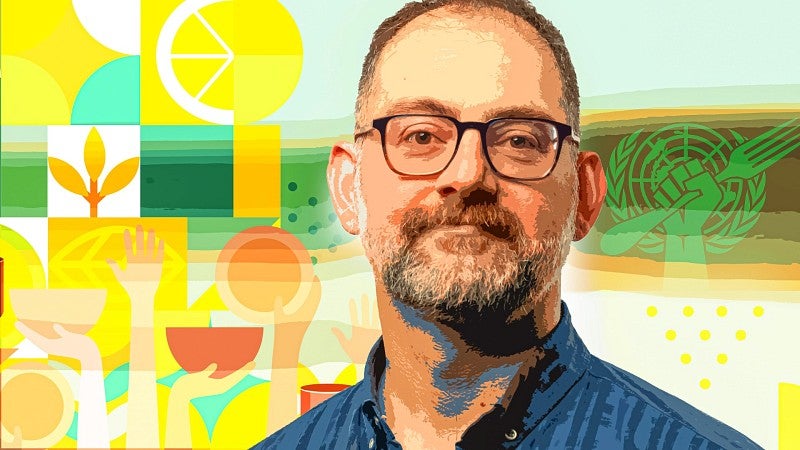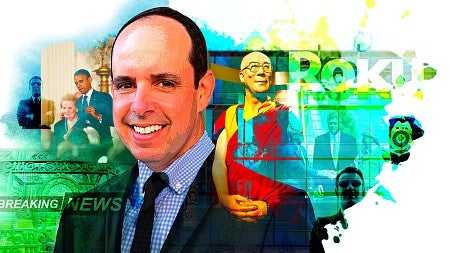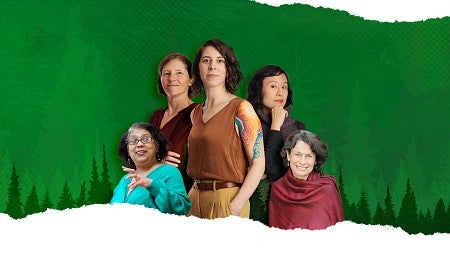
Fighting Hunger from the Willamette Valley
Professor Michael Fakhri is the food law expert for the United Nations—and an avid backyard gardener
By Matt Cooper • Illustration by David Gill • July 12, 2023
3 min readNearly a third of the world doesn’t have enough food. Hunger is rising in every country, from the US to Uganda. Yet despite this demand, there is an imbalance in supply: small farms are mostly toiling in poverty while global agribusinesses enjoy historic profits.
This is the state of an international food crisis, according to Michael Fakhri, a professor in the University of Oregon School of Law. Fortunately, he’s perfectly positioned to do something about it.
Fakhri is the United Nations Special Rapporteur on the Right to Food. In this high-profile volunteer role, he uses his expertise in food law—legislation on the production, trade, and handling of food—to guide policy on issues including farmers’ rights and global food-delivery systems. Working with stakeholders ranging from grass-roots activists to international governments, Fakhri reports on topics that push the UN’s agenda.
High on Fakhri’s agenda is the food crisis, which he says is rooted in laws contrary to the position that healthy, affordable, accessible food is a human right. He’s working on a report regarding what the UN should do about it.
“One of the major problems is that the power is in the hands of the few large corporate food systems and their focus is on input and output,” Fakhri says. “We need to put the power back in the hands of the people. It’s about people having the control over deciding what counts as good food, how we eat, and what food relationships we’re going to have with nature and with other people.”
Seeds = life
If Fakhri could right one food wrong immediately, he would ensure that seeds remain free to use and share.
Seeds are, by definition, the source of life itself, he says. Farmers have saved and exchanged them for thousands of years, ensuring biodiversity and better disease resistance.
But companies are increasingly patenting seeds and using property law to block access to them. The concurrent rise of single-crop farming weakens soils and increases the risk of disease and pest outbreaks, Fakhri says.
Michael, how does your garden grow?
Summer is Fakhri’s favorite season—it means backyard barbecues and trips to the farmers market. With the warming weather, Fakhri’s garden is starting to come alive with strawberries, tomatoes, and more. The only question? His cucumbers.
“I have a complicated relationship with cucumbers,” he says, laughing. “I don’t know why, they don’t grow well in my garden. Last year, I finally got it. I’m praying I get good cucumbers.”
Hunger amid agricultural abundance
Fakhri is coleader of the UO Food Resiliency Project, which examines environmental and policy issues of the food system, including production, transportation, and consumption.
His 2010 arrival in the Willamette Valley impressed upon him the problems with the local food system: more than one million acres of the basin are devoted to agriculture yet there is hunger in the community and even on campus, he says.
Fakhri will study this predicament and also plans to build relationships with the Kalapuya people and other tribes and bands of the Confederated Tribes of the Grand Ronde Community of Oregon, the first peoples of the valley and other parts of Oregon.
“I’m just really grateful to live here, even though I’m an uninvited guest on indigenous land,” Fakhri says. “I need to be in good relations with the people of this land.”
Matt Cooper is managing editor for Oregon Quarterly.




